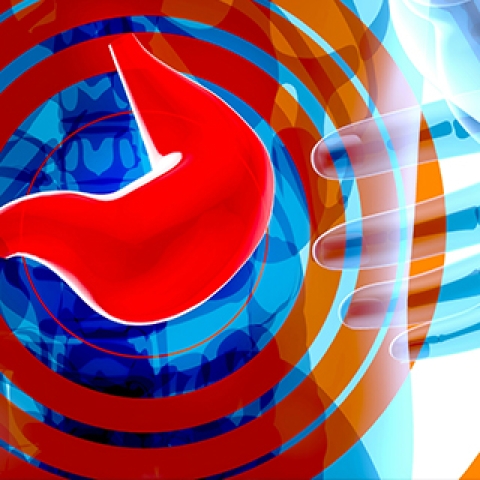

Dr Priyanka Dey was recognised for her pioneering research to develop technology that can detect and locate cancer in a patient’s body without them having to undergo a surgical biopsy.
11 April 2024
3 minutes
A University of Portsmouth researcher has been named as one of the world’s top 20 rising stars for her work to help speed up cancer diagnosis.
Dr Priyanka Dey is included among the inaugural group of 20 Rising Stars in Measurement Science by the American Chemical Society (ACS) journal ACS Measurement Science Au.
She was recognised for her pioneering research to develop technology that can detect and locate cancer in a patient’s body without them having to undergo a surgical biopsy.
Dr Dey’s research group uses a typical analytical tool known as Raman spectroscopy and have significantly modified it for its use as a biomedical technology, to make cancer diagnosis a less painful, biopsy-free and more efficient process. They are developing tiny molecular “trackers” that can be injected into a patient to track and locate different types of cancer, and a specialised Raman instrument that can be used to detect the signal of these trackers from outside of the body.
To achieve this clinically, the team is currently fine-tuning the design of the intelligent trackers, which are made up of tiny but intelligent gold beads, carefully organised into specific structures, and coated with functional molecules.
It is a great pleasure to be globally recognised among the selected few outstanding researchers in the field of analytical and biomedical science. I am grateful to the American Chemical Society ACS and the editors of this Rising star issue. Getting appreciation for the work you are passionate about – making cancer less painful – is truly gratifying.
I am looking forward to advancing this technology and translating it to the clinics for NHS’ use. This will be possible by the amazing researchers of my team and our School and Faculty’s continuous support.
Dr Priyanka Dey, Assistant Professor in Bioanalytical Chemistry
In 2022, Dr Dey was named as one of four winners of the 2022 CAMS Fellowships awards in the UK for her research work in the specialised Raman instrument development.
Dr Dey, Assistant Professor in Bioanalytical Chemistry from the School of Pharmacy and Biomedical Sciences, said: “It is a great pleasure to be globally recognised among the selected few outstanding researchers in the field of analytical and biomedical science. I am grateful to the American Chemical Society ACS and the editors of this Rising star issue. Getting appreciation for the work you are passionate about – making cancer less painful – is truly gratifying.
“I am looking forward to advancing this technology and translating it to the clinics for NHS’ use. This will be possible by the amazing researchers of my team and our School and Faculty’s continuous support.”
Professor Joy Watts, Associate Dean for Research and Innovation in the Faculty of Science and Health, said: “It is a wonderful achievement for Priyanka to be recognised as an American Chemical Society rising star - only one of 20 worldwide. This is testament to Priyanka's cutting edge research using Raman technologies and her commitment to research with real world impact.
“Priyanka's work is in a key research focus area for the Faculty of Science and Health - providing innovative solutions to problems in clinical practice. As such, the University has recently purchased a multimodal optical imaging system with specialised Raman spectroscopy via Research Culture and Innovation Fund to support and develop this research area further.”
Shelley Minteer, Editor in Chief of ACS Measurement Science Au, said in the Virtual Special Issue dedicated to the 2023 Rising Stars in Measurement Science: “With over 300 nominations, it was very challenging to choose the first group of Rising Stars in Measurement Science. However, I’m pleased with this group of 20 Rising Stars featured in this virtual special issue showing the diversity in the field of measurement science and the new directions that the field is going in.”
Other stories you may be interested in
Study to explore if outdoor swimming is helpful for depression after successful trial
28 March 2024
7

Portsmouth researcher awarded share of £6.6m funding to help develop new drug
20 March 2024
6

Natural compound promising new alternative treatment for colon cancer
26 February 2024
3 minutes

